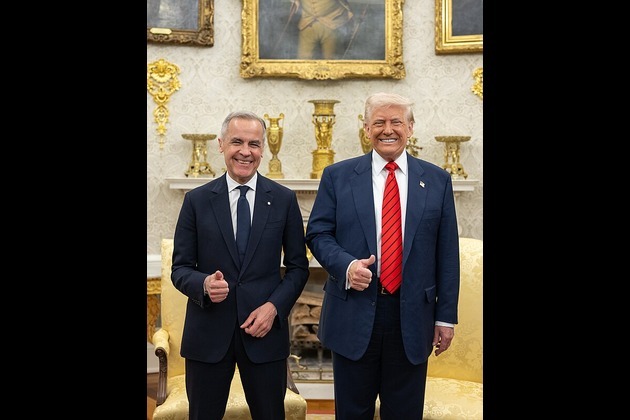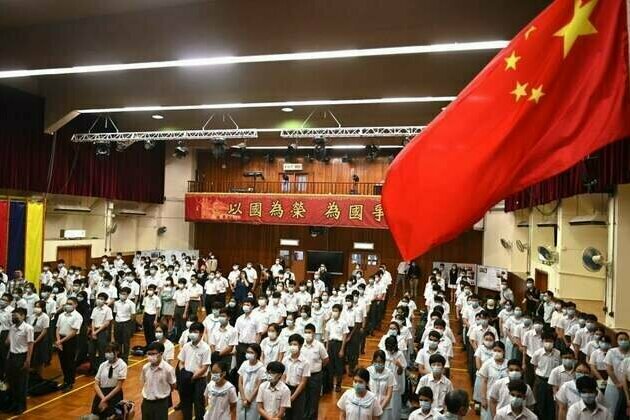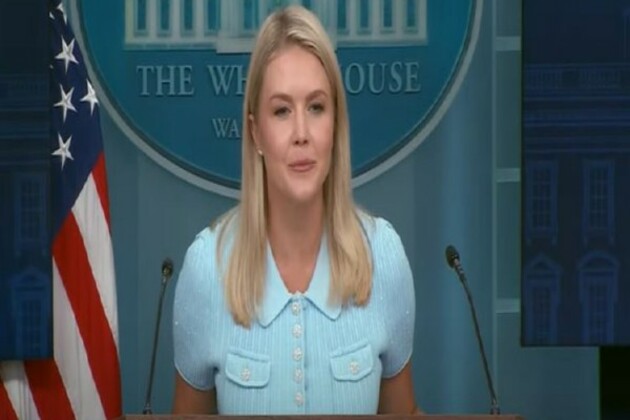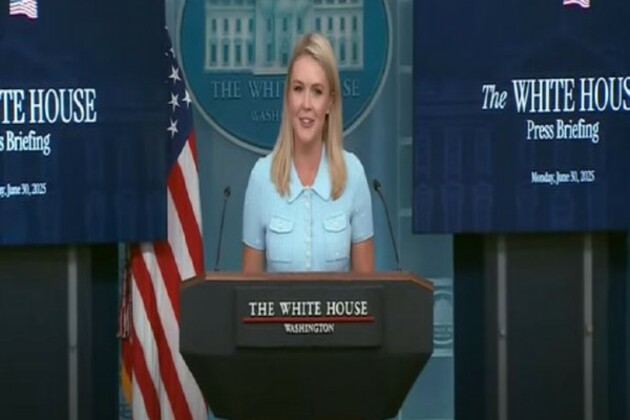Uzbekistan Faces Choice Between Closer Ties to US, Russia
Voice of America
02 Dec 2019, 05:05 GMT+10
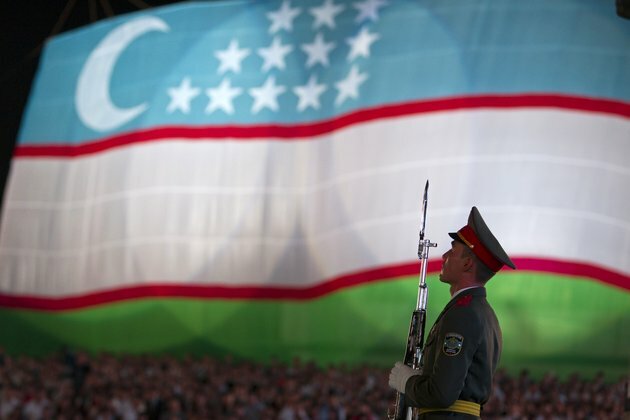
WASHINGTON - After two decades of disengagement from international entanglements, a newly confident Uzbekistan is seeking a larger role in its Central Asian neighborhood, prompting the United States and Russia to compete for its favor in ways that echo their long-past Cold War rivalry.
Moscow hopes to cement Uzbekistan into its regional bloc, the Eurasian Economic Union (EEU), which includes Armenia, Belarus, Kazakhstan, and Kyrgyzstan. Doing so would preserve Russia's primacy in Central Asia.
Washington, for its part, aims to keep Uzbekistan out of that bloc while pursuing counterterrorism measures and economic cooperation and promoting Western values.
The long-term impact of the battle for influence remains uncertain, however, since it is another rising superpower -- China -- that has increased its economic presence most rapidly in Uzbekistan and the region.
Tashkent is in talks with Russia on EEU membership but insists no decision has been made yet. President Shavkat Mirziyoyev's foreign policy adviser, Senator Sodiq Safayev, argues that Uzbekistan needs to consider EEU membership but insists that Tashkent does not approach economic issues through the prism of ideology or exclusionary blocs.
"We want to be economically pragmatic in our foreign policy," he told VOA in an exclusive interview, and "choose partners based on our needs and interests."
Safayev adds it is not governments but businesses, which are driven by considerations of supply and demand, that dictate trade and investment decisions. Thus, "economic actors and factors drive our policy too. We look at our top partners and then aim to strengthen ties with them," Safayev says.
He lists the key economic players affecting his country as Russia, China, Kazakhstan, South Korea, the European Union, and increasingly Turkey.
Diverse economic ties are important because double-landlocked Uzbekistan lacks direct access to ports. Geography alone means the country needs all the economic partnerships it can muster.
Indeed, Safayev insists Tashkent does not need to choose sides: "We don't see conflict or collision with the United States or European Union even if we enter [the EEU]." After all, its "current members all have economic relations and business cooperation with the West."
Washington consistently stresses that its goal is not to compete with Russia and China in Central Asia but to be a unique partner offering unique opportunities, such as market access and best-in-class financial services.
Wilbur Ross, the U.S. commerce secretary, says that "pursuing membership in the EEU could complicate and extend the [World Trade Organization] accession process beyond the timeline set by Uzbekistan's leaders." Still, Ross said at a recent Uzbek-American business forum in Washington, the U.S. is committed to being a strategic partner in Uzbekistan's growth and development through trade and investment.
Since Uzbekistan hopes to attract American investment, Ross' warning is a signal to Tashkent that the near-term gain of EEU membership might interfere with the longer-term goal of winning a larger share of Western foreign direct investment.
Safayev counters that Tashkent does not foresee such complications because all current EEU members are also WTO members which have navigated between the two.
In any event, U.S. trade with Uzbekistan is at a low base: According to the Office of the U.S. Trade Representative, Uzbekistan is currently America's 142nd largest goods trading partner with just $315 million in two-way trade in 2018. Uzbekistan was America's 119th largest market for goods and its 159th largest supplier of goods in 2018.
Republican Congressman Trent Kelly, co-chair of the Uzbekistan Caucus in the U.S. House of Representatives, says that is a base upon which to build.
"I don't think [Uzbekistan] needs to be anybody's puppet ... I'm not worried about Russian influence. I'll let them worry about us ... We're not trying to take over Uzbekistan ... We want the Uzbek people to take control of Uzbekistan," Kelly told VOA.
Washington promotes its own regional integration mechanism -- a grouping of the United States and five Central Asian countries known as the C5+1. Alice Wells, assistant secretary of State for South and Central Asian affairs, describes the group as effective and relevant and says Washington pushes for regional connectivity but rejects exclusionary blocs.
"A bloc sounds very formal - and like some are excluded," Wells told VOA. "I think Central Asian countries, like all countries, have many different identities."
The Trump administration views C5+1 as viable mainly because Uzbekistan has at last become more active in its region. Wells argues that it took the opening of Uzbekistan through the "good-neighbor policy" introduced by Mirziyoyev when he took office in 2016, for Central Asians to start a regional dialogue about their future.
Mirziyoyev gave economic integration "a great punch," Wells says. "And so, we've seen tremendous progress since President Mirziyoyev brought this very fresh attitude."
However, there are huge obstacles to overcome, despite assurances from Mirziyoyev and his fellow presidents, that they are all in sync. The countries have widely differing economic situations and resource endowments, and they continue to struggle over border and water issues as well as security challenges.
 Share
Share
 Tweet
Tweet
 Share
Share
 Flip
Flip
 Email
Email
Watch latest videos
Subscribe and Follow
Get a daily dose of China National News news through our daily email, its complimentary and keeps you fully up to date with world and business news as well.
News RELEASES
Publish news of your business, community or sports group, personnel appointments, major event and more by submitting a news release to China National News.
More InformationBusiness
SectionWall Street extends rally, Standard and Poor's 500 hits new high
NEW YORK, New York - U.S. stock markets closed firmly in positive territory to start the week Monday, with the S&P 500 and Dow Jones...
Canadian tax on US tech giants dropped after Trump fury
WASHINGTON, D.C.: On Friday, President Donald Trump announced that he was halting trade discussions with Canada due to its decision...
Trump-backed crypto project gets $100 million boost from UAE fund
LONDON, U.K.: A little-known investment fund based in the United Arab Emirates has emerged as the most prominent public backer of U.S....
DIY weight-loss drug trend surges amid high prices, low access
SAN FRANCISCO, California: Across the U.S., a growing number of people are taking obesity treatment into their own hands — literally....
Apple allows outside payment links under EU pressure
SAN FRANCISCO, California: Under pressure from European regulators, Apple has revamped its App Store policies in the EU, introducing...
Euro, pound surge as U.S. rate cut odds grow after Powell hint
NEW YORK CITY, New York: The U.S. dollar tumbled this week, hitting its lowest levels since 2021 against the euro, British pound, and...
Asia Pacific
SectionDeepSeek faces app store ban in Germany over data transfer fears
FRANKFURT, Germany: Germany has become the latest country to challenge Chinese AI firm DeepSeek over its data practices, as pressure...
Western Sydney raid results in seizure of $25 Million in drugs
SYDNEY, NSW, Australia - , Australian Federal Police (AFP) have shut down a secret drug lab in Sydney's west and seized more than 100kg...
China: Building a 'Patriots Only' Hong Kong
(New York) - China's government has erased Hong Kong's freedoms since imposing the draconian National Security Law on June 30, 2020,...
President has very good relationship with PM Modi: White House on India's importance in Asia-Pacific
By Reena Bhardwaj Washington DC [US], July 1 (ANI): White House Press Secretary Karoline Leavitt praised India's role as a strategic...
"Will hear from President and his trade team soon when it comes to India": White House spokesperson
By Reena Bhardwaj Washington DC [US], July 1 (ANI): White House Press Secretary Karoline Leavitt on Monday (US local time) confirmed...
UAE supplies 40.8 pc of Japan's oil imports in May
Tokyo [Japan], June 30 (ANI/WAM): The United Arab Emirates was Japan's top crude oil supplier in May 2025, providing Tokyo with 30.42...


